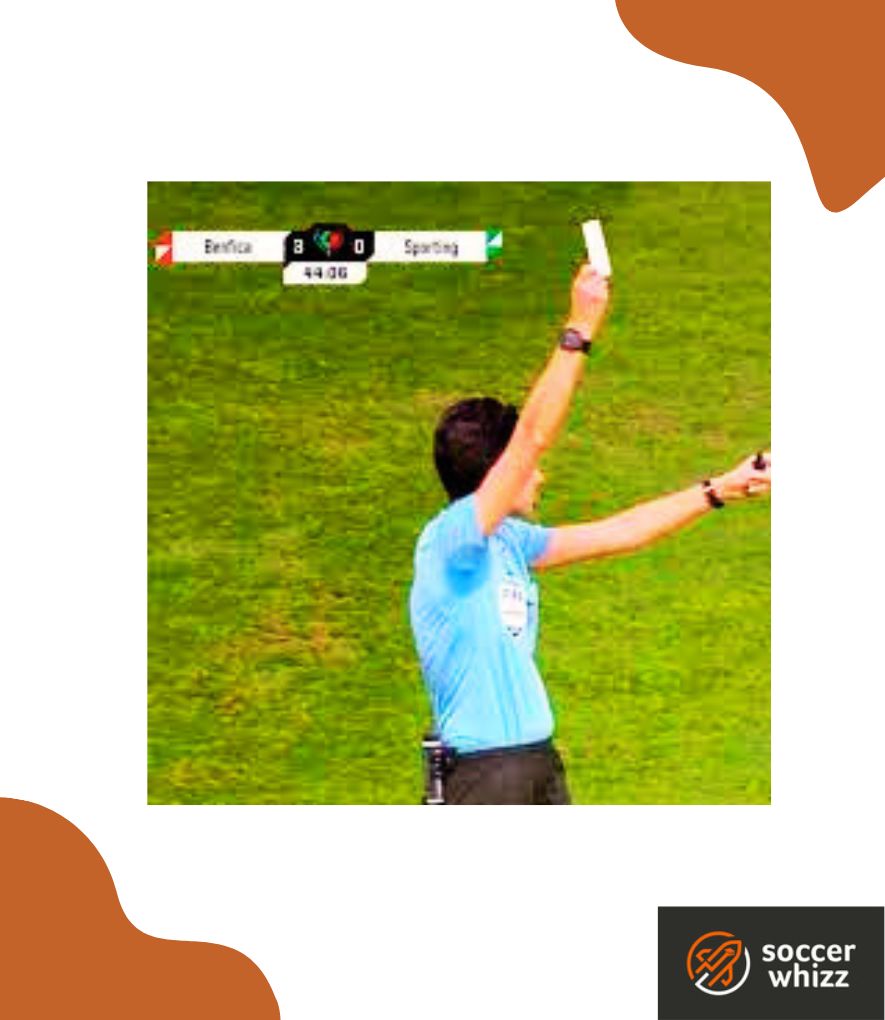Imagine a world where soccer referees possess an additional tool to promote fair play and maintain the integrity of the beautiful game.
While the traditional yellow and red cards are widely recognized, the white card introduces a new dimension to the referee’s decision-making process.
In this article, we’ll delve into what exactly a white card represents in soccer, its purpose, potential benefits, and the debates surrounding its implementation.
Join us as we explore this intriguing addition to the referee’s toolkit and its potential impact on the world’s most beloved sport.
What does the white card represent?
The white card serves as a symbol of recognition for fair play in soccer. Unlike the traditional yellow and red cards that carry consequences, the white card holds no inherent benefits or drawbacks.

Instead, it serves as a powerful tool aimed at enhancing the ethical values within the sport.
The white card can be presented to players, coaches, or members of the medical staff from either team, acknowledging their adherence to the principles of fair play.
When was the first white card used during a game?
A historic moment unfolded in soccer on the 21st January 2023, during a women’s cup match between Benfica and Sporting Lisbon.
It was during the intense Taca de Portugal encounter when something extraordinary occurred.
With Benfica leading 3-0 against Sporting Lisbon, a moment of concern arose just before halftime.
News spread that an individual off the pitch had suddenly taken ill, prompting the swift response of both teams’ medical staff.
In a symbolic gesture, referee Catarina Campos made history by brandishing the white card.

This unique card was presented to commend the exceptional actions of the medical staff from both teams.
The Estadio da Luz reverberated with applause and a standing ovation from the fans, recognizing the remarkable dedication and professionalism displayed by these unsung heroes.
This unprecedented use of the white card marked a milestone in soccer, highlighting its significance not only in enforcing rules but also in celebrating moments of compassion, unity, and solidarity on the pitch.
Below is footage which shows how this sequence of events played out:
Which other instances has the white card been used during a soccer game?
As of now, there has only been one instance where the white card was used in a soccer game, which occurred on the 21st of January 2023.
In an effort to promote positive behavior on the field, Portugal has introduced a unique initiative as part of its National Plan for Ethics in Sport (PNED).
This initiative has received approval from the Portuguese Football Federation (FPF) and has been given the green light to be implemented across all domestic soccer tournaments, including the prestigious Liga Portugal.
As the implementation of the white card gains momentum in Portugal, it sets an inspiring example for other soccer associations and governing bodies worldwide, highlighting the importance of acknowledging and celebrating positive actions on the field.
Will the white card ever be introduced into competitions like the Premier League and UEFA Champions League?
Currently, the utilization of the white card remains exclusive to Portugal, as it awaits approval from the International Football Association Board (IFAB) for wider international recognition and implementation.
As a result, the prospects of witnessing the white card’s introduction into prestigious top-tier leagues such as those in England, Spain, Italy, Germany, and France, as well as continental competitions organized by UEFA, seem improbable at this time.
The regulations and protocols governing these prominent soccer competitions have not yet adopted the white card as an official tool to appreciate positive acts on the field.
While its presence is currently confined to Portugal, it is essential to keep an eye on potential developments and decisions made by soccer’s governing bodies.
The future may hold new possibilities for the adoption and expansion of the white card beyond Portugal, promoting fair play and ethical behavior on a broader international scale.
Concluding thoughts
In conclusion, the white card represents a unique approach to promoting fair play and ethical behavior in the world of soccer.
While its implementation remains limited, particularly to Portugal under the National Plan for Ethics in Sport (PNED), the concept of the white card has sparked intriguing discussions on the recognition of positive actions on the field.
Although yet to receive approval from the International Football Association Board (IFAB) for wider international recognition, the white card serves as a reminder of the importance of sportsmanship and commendable behavior within the beautiful game.
Portugal’s embrace of the white card exemplifies their commitment to fostering a culture of fair play and setting a positive example for soccer communities worldwide.
For more information on the sort of cards that soccer referees can give to players, check out the following content pieces:
- what a red card means in soccer;
- what a yellow card in soccer represents;
- what a green card in soccer is all about; and
- what a blue card in soccer is
If you enjoy the content that I create and would like to buy me a coffee, then I’d really appreciate it!
Any money that I earn through this donation will be re-invested into more content for this website.
Additionally, by sending in a donation you’ll also receive a copy of my recently released 190+ page eBook on Soccer Ball Care, as well as be subscribed to our mailing list where you’ll be regularly informed on the latest developments concerning the Soccer Whizz blog.
- Future Icons: Europe’s Emerging Midfield Maestros Set for Glory - December 4, 2023
- Kickstarting a Revolution: How Soccer Transformed the United States Over the Last Four Years - October 7, 2023
- 4-1-4-1 Soccer Formation [Analysis] - September 23, 2023

